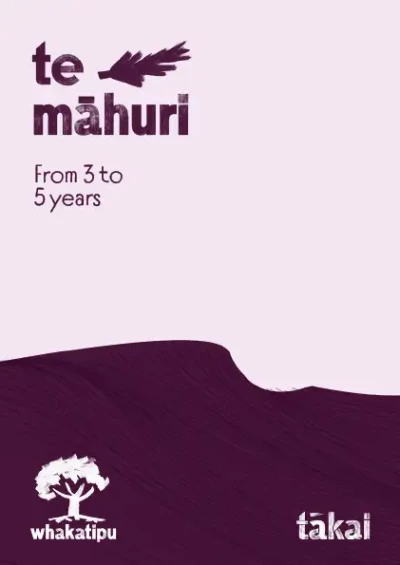
Water play outdoors – Tākaro wai ki te taiao
Water play promotes curiosity, language acquisition, fine and gross motor development, communication skills and eye-hand coordination. As tamariki explore outdoors they learn about science and maths and their connection to the world is strengthened.
Why do it?
Playing with and in water is a great way for tamariki to:
- participate safely in an activity that can be enjoyed in a variety of places by a range of whānau members of different ages
- enjoy being outside with whānau at the beach, river or lake, which is sure to be a rich sensory experience that they will remember vividly
- participate in and learn about traditional practices with whānau
- strengthen language by expanding vocabulary, asking and answering questions, and sharing and discussing ideas
- build their physical fitness and strength at the same time as their skills and confidence.
How to do it
- Ensure tamariki are always safe when playing near or with water, through careful supervision.
- Involve tamariki in the whānau tikanga for the moana , awa and ngahere , especially where safety is concerned.
- Talk about what tamariki show an interest in and what you are both doing together.
- Explore rock pools and talk about the different children of Tangaroa who live there.
- Paddle in the shallow waters at the beach, chasing the waves in and running away from them as they return again.
- Build sand banks to create small pools or to direct the flow of the water. Float or race sticks or seaweed along your water track.
- Show tamariki how to skim stones across the surface of the water.
- Help tamariki develop their rich language by using open-ended questions that start with ‘what’, ‘who’, ‘where’, ‘why’ and ‘how’.
Using more reo Māori
| Te reo Māori | English |
|---|---|
| Tātahi | Beach |
| Tai | Tide |
| Ngaru | Wave |
| Kōhatu | Stone |
| Mākohakoha | Smooth |
| Taratara | Rough |
| Kirikiri | Sand |
| Karoro | Seagull |
| Angaanga | Shell |
| Kai moana | Sea food |
| Ika | Fish |
| Pātangaroa | Starfish |
| Rimurimu | Seaweed |
| Kina | Sea egg |
| Pāpaka | Crabs |
| Mātaitai | Salty |
| E haere ana mātou ki te tātahi ki te kohi kai moana | We’re going to the beach to get seafood |
| Nāku i kite ētahi angaanga | I found some shells |
| Awa | River |
| Ākau | Stream |
| Manga | Creek |
| Hōpua | Pool |
| Taha | Side |
| Māniania | Slippery |
| Whakaretiretitia | To slide, slide down |
| Pāpaku | Low |
| E noho ki roto i te wai pāpaku | Stay in shallow water |
 pdf 11 MB
pdf 11 MB











